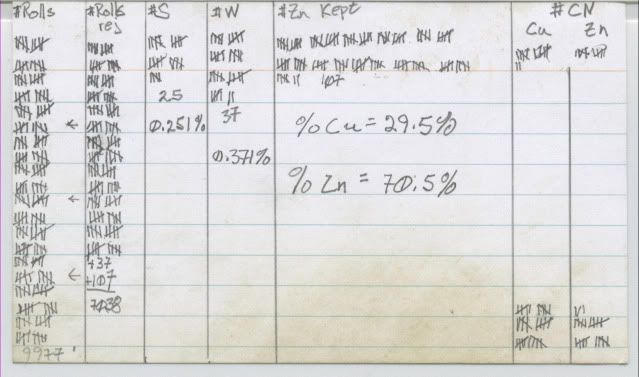This is your morning Open Thread. Pour a cup of your favorite morning beverage and review the past and comment on the future.
August 2 is the 214th day of the year (215th in leap years) in the Gregorian calendar. There are 151 days remaining until the end of the year.

Fifty-six congressional delegates in total signed the document, including some who were not present at the vote approving the declaration. The delegates signed by state from North to South, beginning with Josiah Bartlett of New Hampshire and ending with George Walton of Georgia. John Dickinson of Pennsylvania and James Duane, Robert Livingston and John Jay of New York refused to sign. Carter Braxton of Virginia; Robert Morris of Pennsylvania; George Reed of Delaware; and Edward Rutledge of South Carolina opposed the document but signed in order to give the impression of a unanimous Congress. Five delegates were absent: Generals George Washington, John Sullivan, James Clinton and Christopher Gadsden and Virginia Governor Patrick Henry.
The United States Declaration of Independence is a statement adopted by the Continental Congress on July 4, 1776, which announced that the thirteen American colonies then at war with Great Britain were now independent states, and thus no longer a part of the British Empire. Written primarily by Thomas Jefferson, the Declaration is a formal explanation of why Congress had voted on July 2 to declare independence from Great Britain, more than a year after the outbreak of the American Revolutionary War. The birthday of the United States of America-Independence Day-is celebrated on July 4, the day the wording of the Declaration was approved by Congress.
The Declaration justified the independence of the United States by listing colonial grievances against King George III, and by asserting certain natural rights, including a right of revolution. Having served its original purpose in announcing independence, the text of the Declaration was initially ignored after the American Revolution. Its stature grew over the years, particularly the second sentence, a sweeping statement of individual human rights:
We hold these truths to be self-evident, that all men are created equal, that they are endowed by their Creator with certain unalienable Rights, that among these are Life, Liberty and the pursuit of Happiness.
This sentence has been called “one of the best-known sentences in the English language” and “the most potent and consequential words in American history”.
After finalizing the text on July 4, Congress issued the Declaration of Independence in several forms. It was initially published as a printed broadside that was widely distributed and read to the public. The most famous version of the Declaration, a signed copy that is usually regarded as the Declaration of Independence, is on display at the National Archives in Washington, D.C. Although the wording of the Declaration was approved on July 4, the date of its signing has been disputed. Most historians have concluded that it was signed nearly a month after its adoption, on August 2, 1776, and not on July 4 as is commonly believed. The sources and interpretation of the Declaration have been the subject of much scholarly inquiry.
The famous wording of the Declaration has often been invoked to protect the rights of individuals and marginalized groups, and has come to represent for many people a moral standard for which the United States should strive. This view was greatly influenced by Abraham Lincoln, who considered the Declaration to be the foundation of his political philosophy, and who promoted the idea that the Declaration is a statement of principles through which the United States Constitution should be interpreted.
338 BC – A Macedonian army led by Philip II defeated the combined forces of Athens and Thebes in the Battle of Chaeronea, securing Macedonian hegemony in Greece and the Aegean.
216 BC – Second Punic War: Battle of Cannae – The Carthaginian army lead by Hannibal defeats a numerically superior Roman army under command of consuls Lucius Aemilius Paullus and Gaius Terentius Varro.
1377 – the Russian troops are defeated in the Battle on Pyana River, while being drunken.
1610 – Henry Hudson sails into what it is now known as Hudson Bay, thinking he had made it through the Northwest Passage and reached the Pacific Ocean.
1776 – Declaration of Independence is signed United States
1790 – The first US Census is conducted.
1798 – French Revolutionary Wars: Battle of the Nile (Battle of Aboukir Bay) concludes in a British victory
1869 – Japan’s samurai, farmer, artisan, merchant class system (Shinokosho) is abolished as part of the Meiji Restoration reforms. (Traditional Japanese date: June 25, 1869).
1870 – Tower Subway, the world’s first underground tube railway, opens in London.
1903 – Fall of the Ottoman Empire: Unsuccessful uprising led by the Internal Macedonian-Adrianople Revolutionary Organization against Ottoman Turkey, also known as the Ilinden-Preobrazhenie Uprising.
1916 – World War I: Austrian sabotage causes the sinking of the Italian battleship Leonardo da Vinci in Taranto.
1918 – Japan announces that it is deploying troops to Siberia in the aftermath of World War I.
1932 – The positron (antiparticle of the electron) is discovered by Carl D. Anderson.
1934 – Gleichschaltung: Adolf Hitler becomes Führer of Germany.
1937 – The Marihuana Tax Act of 1937 is passed in America, essentially rendering marijuana and all its by-products illegal.
1939 – Albert Einstein and Leo Szilard write a letter to Franklin D. Roosevelt, urging him to begin the Manhattan project to develop a nuclear weapon.
1943 – Rebellion in the Nazi death camp of Treblinka.
1943 – World War II: PT-109 rammed by the Japanese destroyer Amagiri and sinks. Lt. John F. Kennedy, future U.S. President, saves all but two of his crew.
1944 – ASNOM: Birth of the Socialist Republic of Macedonia, Day of the Republic in the Republic of Macedonia.
1945 – World War II: Potsdam Conference, in which the Allied Powers discuss the future of defeated Germany, concludes.
1964 – Vietnam War: Gulf of Tonkin Incident – North Vietnamese gunboats allegedly fires on U.S. destroyers, USS Maddox and the USS Turner Joy.
1967 – The second Blackwall Tunnel opens in Greenwich, London.
1989 – Pakistan is re-admitted back into the Commonwealth of Nations, for restoring democracy, since 1972.
1989 – 1989 Valvettiturai massacre is carried out by Indian Peace Keeping Force in Sri Lanka killing 64 ethnic Tamil civilians.
1990 – Iraq invades Kuwait, eventually leading to conflict with coalition forces in the Gulf War.




Recent Comments